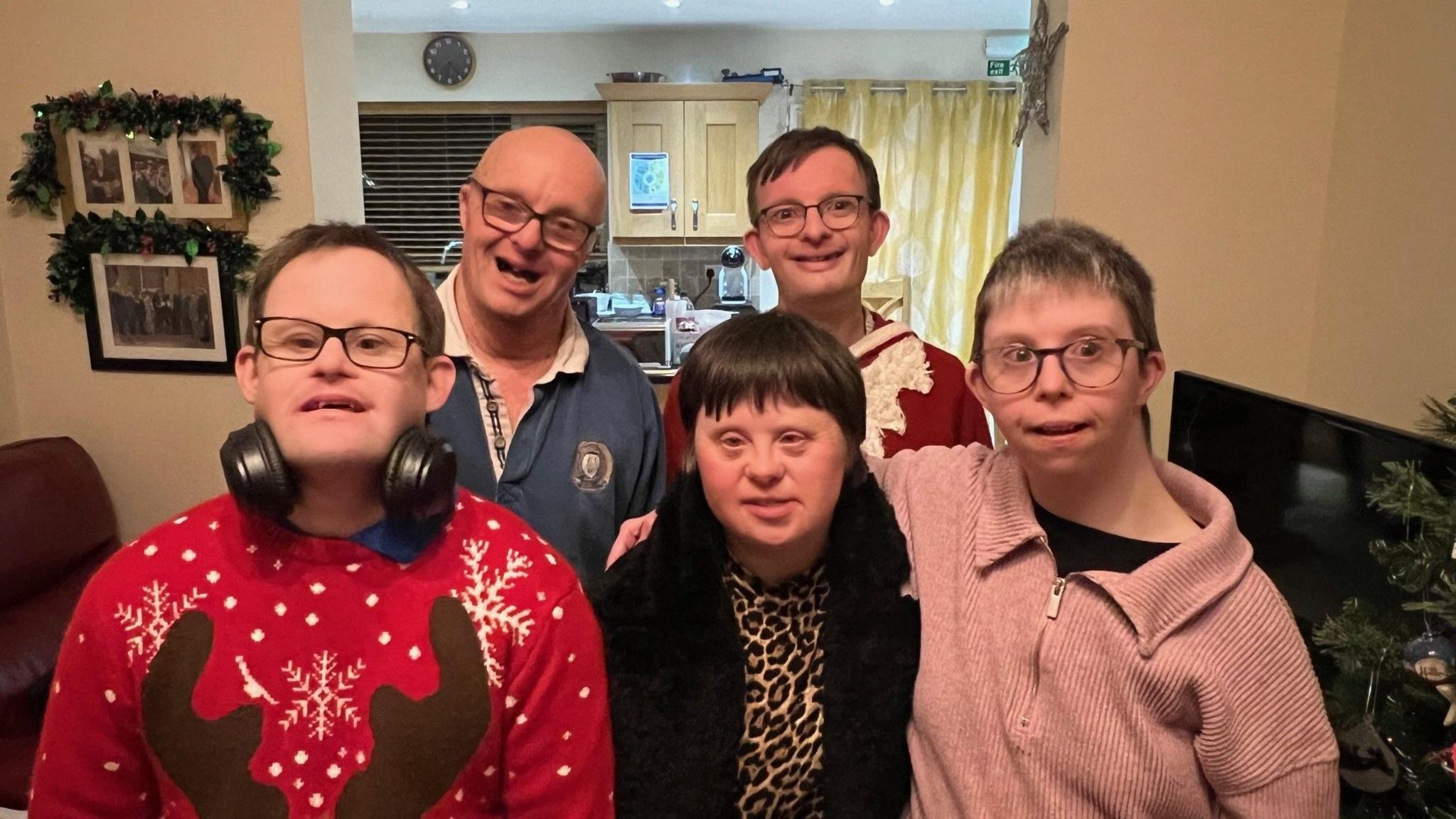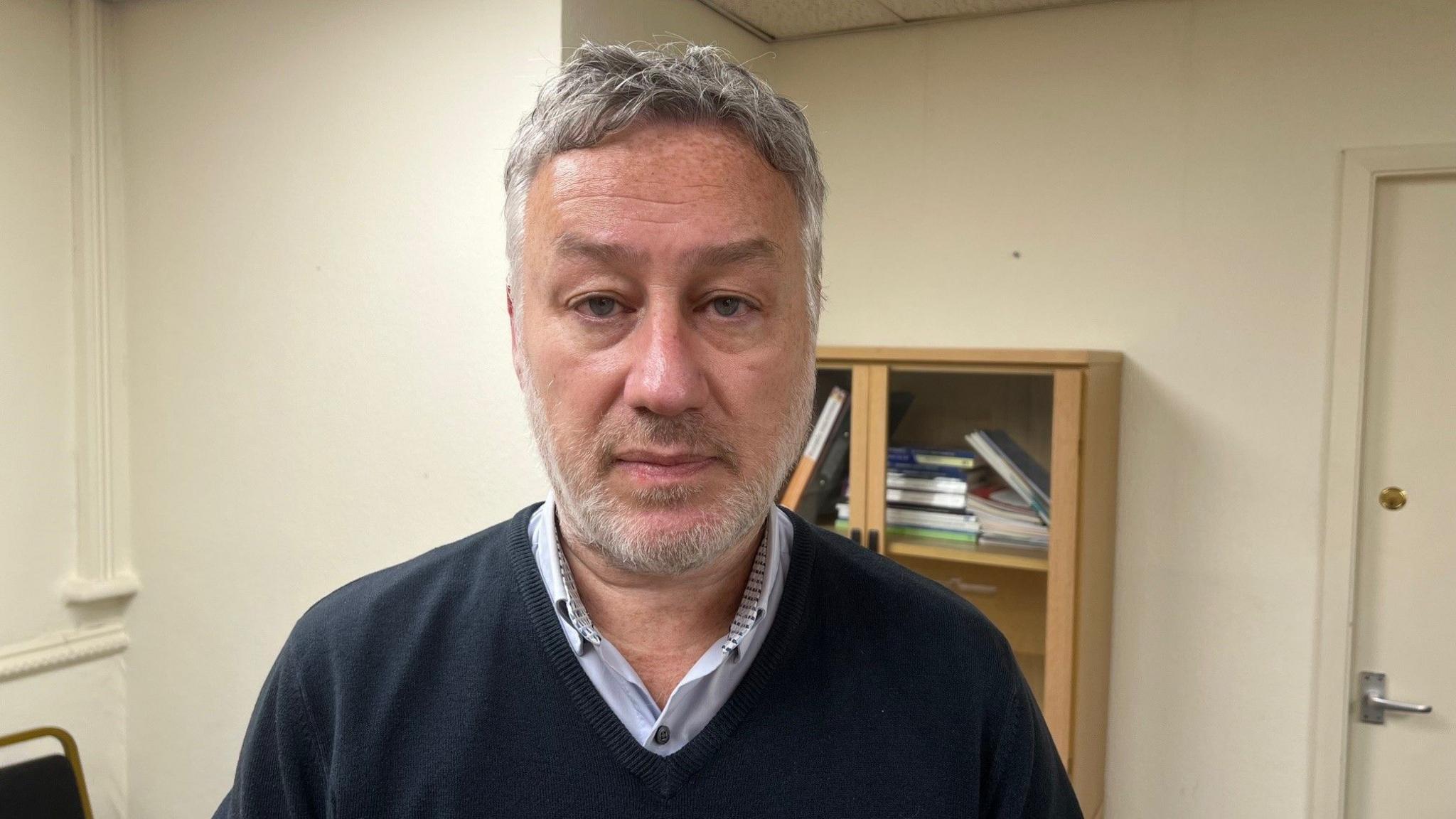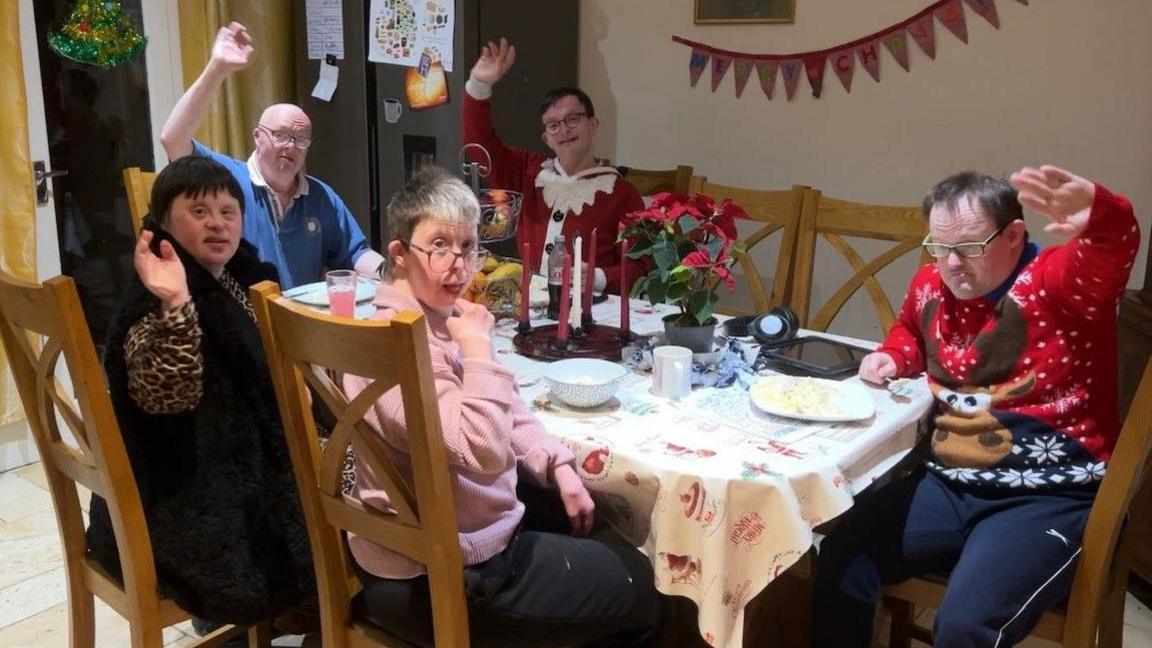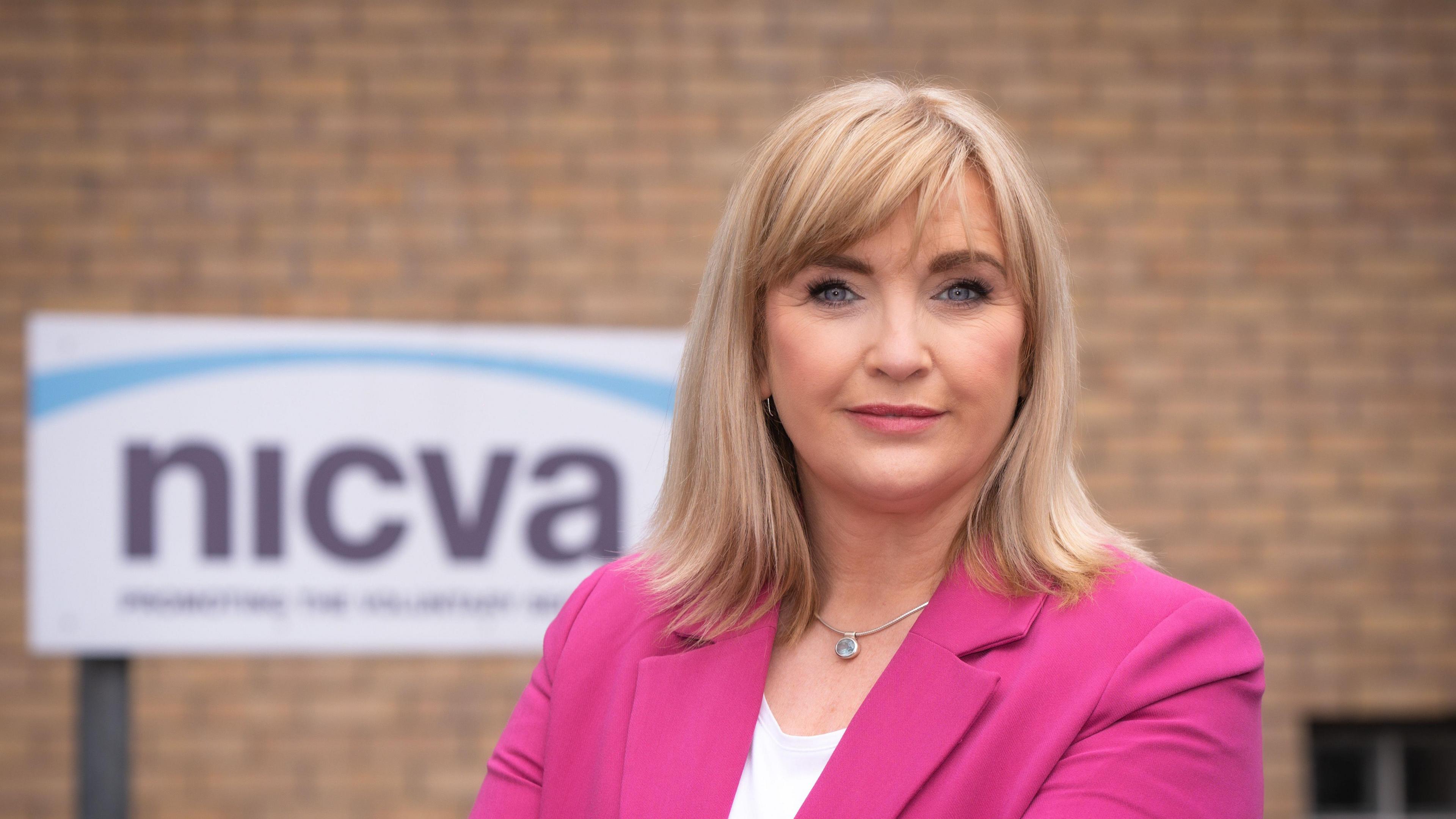Disability charity faces £1.4m Budget costs hike

The Evason family's support is not under threat - but new care packages might be too expensive
- Published
A charity that supports adults with learning and physical disabilities has warned that increasing costs caused by the Budget could threaten some of its services in the future.
The Wilf Ward Family Trust, which provides more than 70 residential and supported living services in Yorkshire, said changes to employers' National Insurance contributions (NICs) and the National Living Wage (NLW) would cost an extra £1.4m per year.
The trust's chief executive, Paul McCay, said it would remain committed to those it already supported, but new contracts might not be possible if they "can't make the sums work".
The government said tackling the challenges facing adult social care was "vital" to its Plan for Change.
'Tight margins'
In October 2024, the government announced it would increase employers' NICs from 13.8% to 15% and lower the threshold at which it must be paid from £9,100 to £5,000.
The new Budget, which comes into effect next April, will also see the National Living Wage rise by 6.7% to £12.21 an hour.
Mr McCay said the result of the increases would mean the trust faced "at least" an extra £600,000 on National Insurance and £800,000 on wages.
He said the charity was already operating on "tight margins" before any changes, with around 60% of its services running a deficit, which the trust had been subsidising out of reserves.
Mr McCay said that while those already receiving support "should not see a difference" it did mean taking on new referrals may not be possible if it became too expensive to provide the care.
"Where we're going to encounter difficulty is if we have new packages of support," Mr McCay said.
"We will ask for one price, the local authority will only be able to offer a different price - and if we can't make the sums work, we can't offer that service.
"Then we will see services start to dwindle and start to be removed."

Chief executive Paul McCay said new contracts may not be possible if he 'can't make the sums work'
The Evason family have been living in supported accommodation provided by the charity in North Yorkshire for nearly 20 years, after initially receiving support at home.
Jonathan, Bethany, Rebekah, Matthew and Benjamin have Down's syndrome, and all apart from Jonathan were adopted by the family as children.
Jonathan, 60, said living together as a family was "really good" as they could "really enjoy Christmases and birthdays".
His sister Rebekah, 41, who is also his goddaughter, said the home made her feel "really happy".
The family have a team of support workers who help them to live full, busy and independent lives, while providing the level of help each individual needs.

The Evason family have lived together for nearly 20 years in supported accommodation
Carol Priestley has been working with the Evason family, who she describes as "wonderful", for about four years.
"Every single one of us should be living a life like the Evasons'," she said.
"Everybody in social care should be allowed to thrive, to live independently and to have the best lives that they possibly can.
"For that the government needs to recognise the importance of social care."
A Department of Health and Social Care spokesperson said: "Our Plan for Change is built on the strong foundations of a stable economy, and tackling the challenges facing adult social care is vital to change.
"That is why we are taking the first steps towards building a National Care Service by introducing legislation that will establish the first ever Fair Pay Agreement for care professionals and increasing the Carer's Allowance earnings threshold by over £2,300 - the biggest rise since the 1970s."
Listen to highlights from North Yorkshire on BBC Sounds, catch up with the latest episode of Look North or tell us a story you think we should be covering here, external.
Related topics
- Published11 December 2024

- Published30 October 2024

- Published15 December 2024
